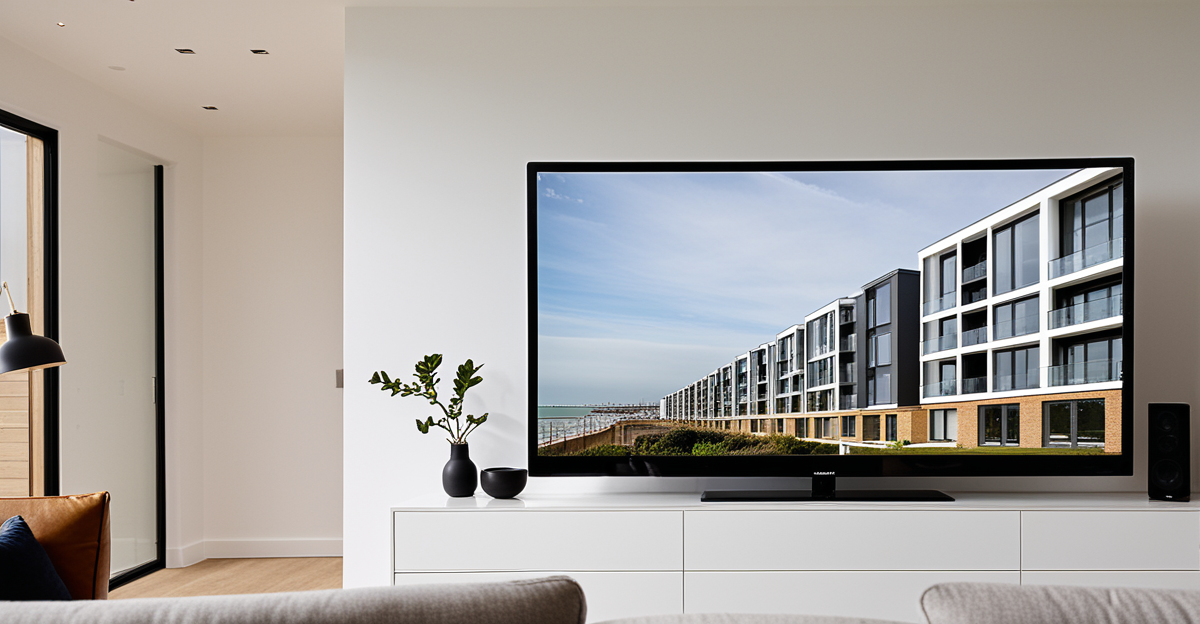Understanding Brighton’s Noise Regulations for Property Development
Brighton enforces strict noise ordinances that significantly affect property development regulations. These local rules aim to balance construction activities with the community’s need for peace and quiet. Developers must understand acceptable noise limits, typically measured in decibels, which vary by time of day and type of activity.
The key authorities overseeing noise control in Brighton include the local council’s environmental health department, responsible for enforcing standards under national legislation tailored to the city’s specific needs. Compliance in Brighton requires that construction noise generally remains below defined thresholds, especially during early mornings and evenings, to minimize disturbance.
Also to discover : Revamp your london basement into a dream home gym: key strategies for a motivational upgrade
Construction sites must adhere to regulations that limit noisy operations during sensitive hours. For example, activities like heavy machinery use are restricted to certain times, often between 8 am and 6 pm on weekdays, with stricter limits on weekends.
Understanding these Brighton noise ordinances and property development regulations is essential for maintaining compliance and avoiding penalties. Ignorance can lead to work stoppages or fines, severely impacting project timelines and budgets. Developers should consult official guidelines early and plan noise control measures accordingly to ensure smooth progress.
Also read : Mastering oxford real estate: the definitive handbook for thriving in a fierce property market
Common Noise Management Challenges in Brighton Property Projects
Brighton property development often faces noise management issues due to the city’s dense residential areas and strict local ordinances. One common challenge is mitigating the impact of construction noise on nearby residents, especially since noise limits are tighter during early mornings, evenings, and weekends. Developers frequently struggle with balancing project timelines against these restrictions, as noisy activities like drilling or heavy machinery use must be carefully scheduled to avoid violations.
Environmental considerations in Brighton also play a significant role. The city’s proximity to sensitive areas such as parks and heritage sites increases scrutiny over noise pollution, adding complexity to compliance efforts. Community complaints are common, often triggering investigations by local authorities, which can lead to delays or fines if noise limits are exceeded.
Non-compliance with Brighton noise ordinances jeopardizes project progress through enforcement actions. Developers may face work stoppages or financial penalties, which can derail budgets and schedules. Ensuring compliance in Brighton requires proactive noise monitoring and stakeholder communication to address concerns early. Recognizing these construction challenges is critical when planning and executing property development in Brighton.
Effective Strategies for Complying with Noise Regulations in Brighton
Brighton’s noise mitigation strategies focus on balancing construction progress with regulatory compliance. Early integration of noise control into project planning significantly improves outcomes. Developers should schedule noisy activities during permitted hours, typically between 8 am and 6 pm on weekdays, to align with compliance in Brighton. This avoids fines and community complaints.
Modern construction methods contribute to noise reduction. Using quieter machinery, acoustic barriers, and damping materials helps minimize sound transmission. For example, electric or hybrid equipment often produces less noise than traditional diesel-powered machines, making this a practical tactic for meeting Brighton noise ordinances.
Regular noise monitoring on-site is essential. Deploying noise assessment tools provides real-time data, enabling teams to adapt work patterns promptly. Furthermore, training workers on noise awareness and enforcing strict operational protocols enhance regulatory compliance.
Engaging with local authorities and residents early promotes transparency. Clear communication about noise mitigation plans addresses concerns and reduces conflicts. Combining these construction best practices ensures developers stay within Brighton’s strict noise limits, safeguarding both project schedules and community well-being.
Practical Tools and Resources for Developers
Developers aiming for compliance in Brighton benefit greatly from using tailored compliance checklists designed specifically for Brighton noise ordinances. These checklists typically cover critical items such as confirming permitted working hours, verifying acceptable noise levels, and ensuring proper documentation of noise mitigation measures. Following these lists helps project managers avoid common oversights and maintain systematic adherence to property development regulations.
Legal references and official guidelines form another essential resource. Accessing detailed local council documents on noise control provides clarity on legal standards and enforcement practices. Such references explain limits on decibel levels during construction and outline repercussions for non-compliance, helping developers stay informed on Brighton’s specific regulatory environment.
Noise assessment tools play a pivotal role in real-time monitoring. Devices that measure decibel levels continuously enable on-site teams to adjust operations promptly to meet the strict requirements of Brighton noise ordinances. For example, digital noise meters linked to project management software offer alerts if noise approaches prohibited levels, reducing risks of violations.
Combined, these practical tools empower developers to navigate the complex regulatory landscape more confidently, ensuring smoother progress in Brighton property development projects.
Understanding Brighton’s Noise Regulations for Property Development
Brighton noise ordinances are designed to protect residents from excessive disturbance during property development. These regulations set clear limits on acceptable noise levels, measured in decibels, that vary depending on the time of day and the nature of construction activities. Typically, noise must remain within prescribed thresholds between 8 am and 6 pm on weekdays, with stricter curfews at night and on weekends to safeguard community wellbeing.
Key authorities responsible for enforcing Brighton noise ordinances include the local council’s environmental health department. This body ensures that property development regulations are upheld by monitoring compliance and responding to complaints. They operate within national legal frameworks but apply specific standards tailored to Brighton’s urban and environmental context.
Violations of Brighton noise ordinances can result in penalties such as fines and mandatory work suspensions, which can disrupt project timelines. Developers therefore must understand these rules thoroughly and incorporate noise management measures into their planning stages to maintain compliance in Brighton. This proactive approach helps avoid regulatory issues while supporting timely and community-friendly property development.







